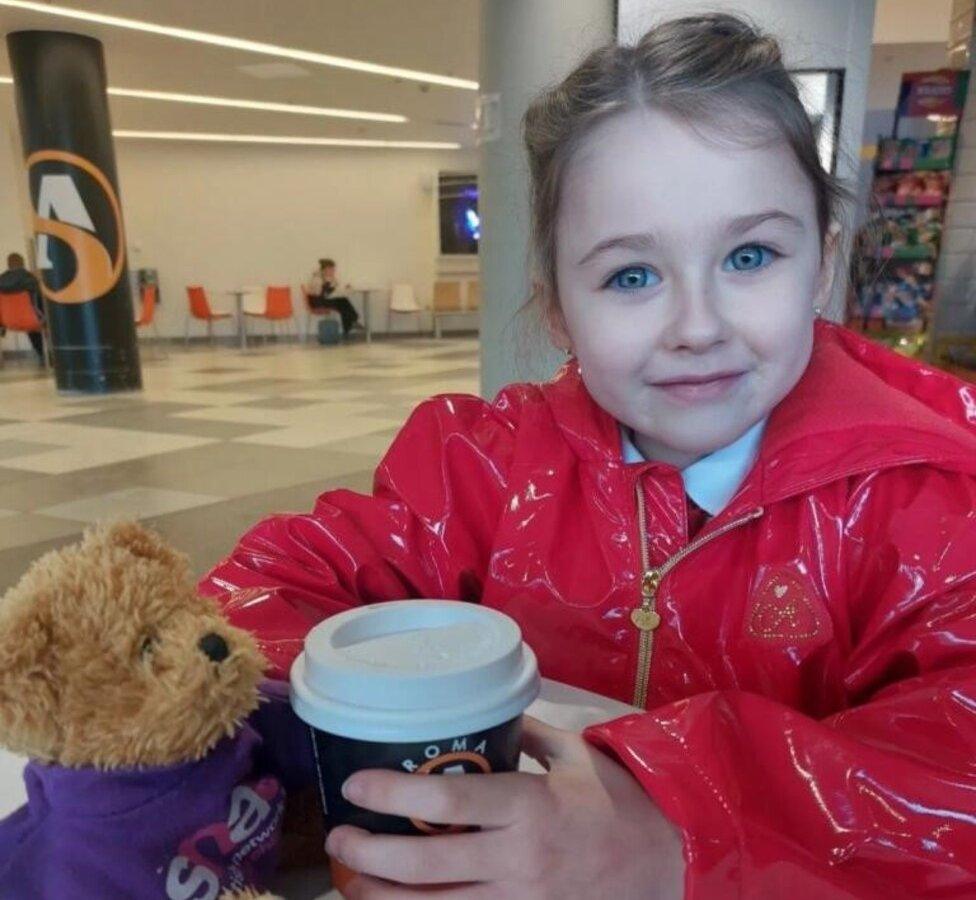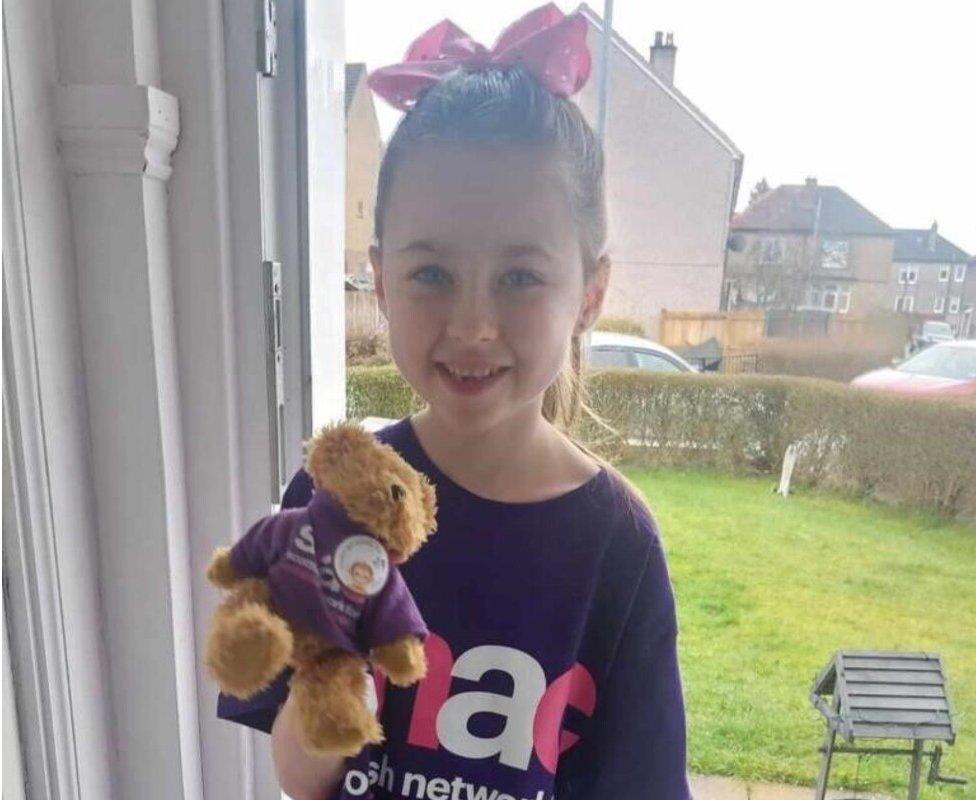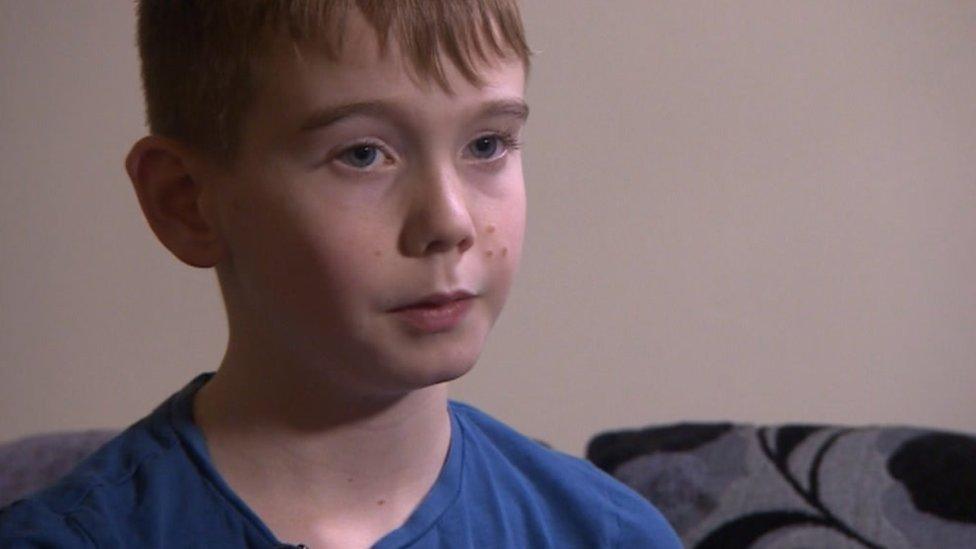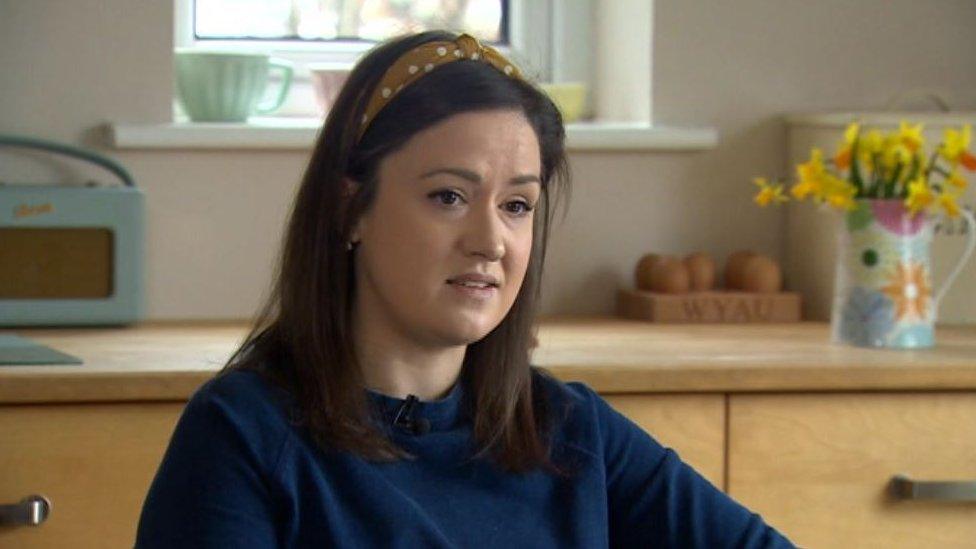Girl, six, diagnosed with arthritis after birthday party fall
- Published

With her medication, Keavagh can live normally
Keavagh Moran was just six years old when she was diagnosed with arthritis.
Keavagh, from Glasgow, had a bad reaction after she fell at a friend's birthday party which led to repeated trips to A&E.
Her parents managed to get an appointment with a physiotherapist, and within half an hour she was diagnosed with arthritis.
Despite being commonly associated with old age, the condition can be triggered by a number of factors.
But with the help of her daily medication, Keavagh is now able to live a normal, active life.
Her dad Andrew Moran told BBC Radio's Good Morning Scotland programme that Keavagh seemed fine after she fell at the party.
"She picked herself back up and didn't think anything of it and started dancing again," he said.
"But the next morning, her knee had ballooned to about three times the size - you couldn't even make out that she had a knee.
"We didn't think she'd broken anything, but she was very stiff so we took her down to A&E.
"They did the usual checks and said she'd twisted it and sent her up the road with painkillers."

Keavagh Moran was diagnosed at just six years old
He said doctors thought she might have reactive arthritis, which causes stiffness and swelling in the joints and tendons.
The condition usually clears up within a few months, however it is more common in people aged between 20 and 40.
"She'd just had an infection," he said.
"And sometimes when kids have an infection, some of their joints react to it and they could have reactive arthritis.
"But it was ongoing, taking her to A&E and getting it checked and the swelling just wasn't going down.
"Even the heat in her knee was unreal - it was really warm to touch."
Given crutches
Keavagh's mum, Leanne Taggart, said they struggled for months to get clear answers on what was wrong.
"It's hard seeing your child in so much pain," she said.
"It got to the stage that I had to actually take her out of school because she couldn't mobilise properly."
The family were finally able to secure an appointment with a physiotherapist in October, two months after Keavagh's fall.
"She was given crutches," she said. "And as soon as the rheumatology doctor saw her, she got her in the next day.
"Within half an hour she was diagnosed with JIA."
Juvenile idiopathic arthritis (JIA) is the most common type of arthritis in children under the age of 16.
The autoimmune disease causes the body to release inflammatory chemicals which attack the tissue lining around a joint.
It is unclear why children develop JIA, but some researchers believe it could be linked to genes which are activated by a virus, bacteria or other external factors.
"Keavagh has got psoriatic arthritis which affects her joints and her fingers," said Ms Taggart.
"She got steroids done with IV and then we went through to Edinburgh kids hospital and she got steroids injections put into her joints."
Psoriatic arthritis is a long-term condition which can get progressively worse.
However, if it is spotted and treated early, its progression can be slowed down to avoid permanent joint damage.
Now she has the right medication, Keavagh can live her life normally again.
"She's doing fantastic," her mum told BBC Scotland. "She's back at dancing, gymnastics, she's doing swimming lessons - just your normal active six-year-old.
"She's doing really good so fingers crossed it keeps going that way."
However, it is still possible for flare-ups to happen in the future.
Mr Moran said: "Sometimes, as with adults, depending on how their body is at the time, their joints could flare up.
"Obviously that would be extremely painful for her, but the medication she's on seems to be keeping it at bay and letting her live a normal life just now."
Doctors gave Keavagh a story book about her condition, which she read to her primary school class to tell her fellow pupils about her diagnosis.
"For being six, she's got a really good understanding," said Ms Taggart.
She also praised her daughter's school during the ordeal, adding: "She's had a fantastic support from pupils and the teachers, they've all been great with her."
Related topics
- Published15 January 2021

- Published12 February 2020

- Published5 April 2019
